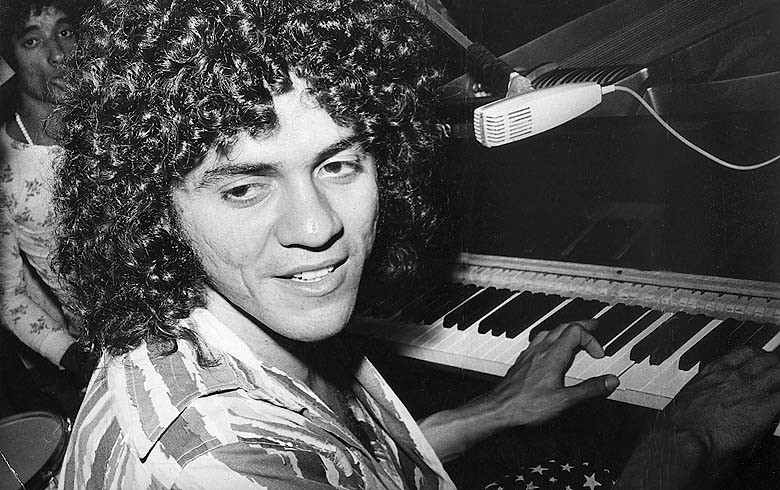Taiguara Chalar de Silva (Montevideo – Sao Paulo – February 14, 1996) was a Brazilian singer/songwriter. Taiguara was born in Montevideo ( Uruguay) as his father, a musician, toured the country. He grew up in Rio, and then moved to Sao Paulo. He was a Mackenzie University Law student and became more involved in student-organized recitals and performances. He eventually left the university to pursue a full-time musical career. He joined the Sambalanco Trio in 1964 and began receiving media attention. This led to his first offer from an independent record label. Taiguara recorded his first album in 1965. He won numerous awards over the years. His career in Brazil was halted by disagreements with the military dictators at the time. He then moved to London to study at the Guildhall School of Music and Drama. He recorded Let the Children Hear the Music. This was the first foreign recording of a Brazilian musician to be censored in Brazil. The same record was also never released in England, as it was deemed “misplaced”. While in exile, he also lived in several African countries, including Tanzania where he studied Journalism for one year. He was always troubled by the harsh realities of the poor and he began to gravitate towards leftist views. Later, he became involved in militant activities that advocated for an equal future for all and social and economic equality. Although he never became affiliated with any political party, Luis Carlos Prestes, the communist leader, was a close friend and mentor to him in his later years. Taiguara wrote the song “O Calaveiro da Esperanca”, The Cavalier of Hope, in his honour. Thirteen years later, Taiguara performed in Brazil again with the concert “Thirteen Octobers”. In 1994, Taiguara released two additional albums: “Cancoes de Amor e Liberdade” Songs of love and Freedom” (1984) and “Brazil Afri” Afro Brasil” (1994). He died of bladder cancer on February 14, 1996. His final project, an album that featured songs that celebrated the hardships and joys of those living in the Rio de Janeiro slums, was never completed. Taiguara, who had close to 100 songs vetoed during his career, was one of Brazil’s most controversial artists. His biggest hits included “Universo no Teu Corpo”, which featured a veiled celebration atheism. Taiguara, like many MPB musicians, composed his own music. From discogs
